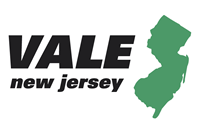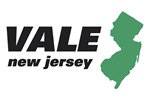VALE is composed of the membership of the public and private institutions of higher education in New Jersey. All member institutions have agreed to a memorandum of understanding that outlines the rights and responsibilities of membership. VALE is directed by a set of Bylaws and governed internally by an Executive Committee elected by and from the membership of the VALE Members’ Council from the following groups:
- Associates (4 representatives)
- Baccalaureate & Masters (4 representatives)
- Doctoral & Special (4 representatives)
- Includes NJ’s 3 R1 Institutions as permanent representatives
Other key members of the Executive Committee include: Members’ Council Moderator, NJLA Executive Director*, LLNJ Executive Director*, VALE Program Manager*, a representative of VALE’s fiduciary agent, and an NJ State Library representative (*non-voting).
The Executive Committee serves as the oversight committee within the Council for the ongoing operation and growth of VALE. Recommendations regarding the purchase of databases, other software and hardware; about issues pertaining to networking, training and documentation, publicity, and other collaboration projects, will be reviewed and approved by the Executive Committee. It is the role of the Executive Committee to ensure that VALE is meeting the needs of the academic library community by undertaking formal assessments and ongoing evaluation of VALE activities. The executive Committee will seek external funding for the continued growth of VALE and will work within the academic library community to leverage collaborative purchasing with existing resources.
The Chair of the Executive Committee will be the official liaison between the Executive Committee and the Members’ Council. The Chair will report regularly to the Council on VALE activities, seek advice on future initiatives, and provide a yearly assessment of VALE’s operations. The Chair will coordinate the work of the Executive Committee and its committees, will call meetings, and promulgate results of discussions, decisions, and recommendations.Planning and policies will be developed by the Executive Committee in collaboration with participating libraries. In order to take advantage of opportunities in the marketplace as database producers introduce new and enhanced products, networking opportunities become available, and as libraries wish to collaborate on additional initiatives, planning and policies will continue to be flexible.


